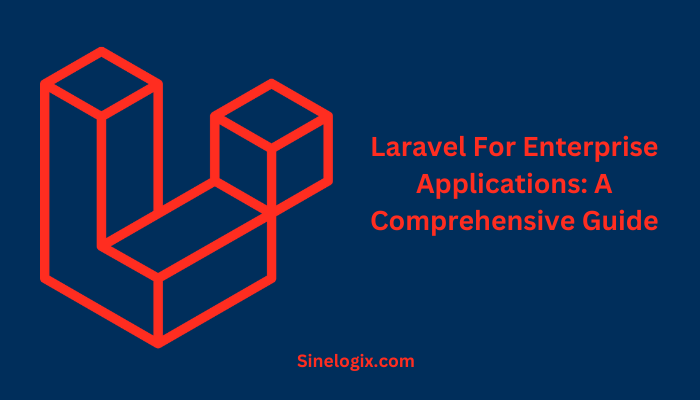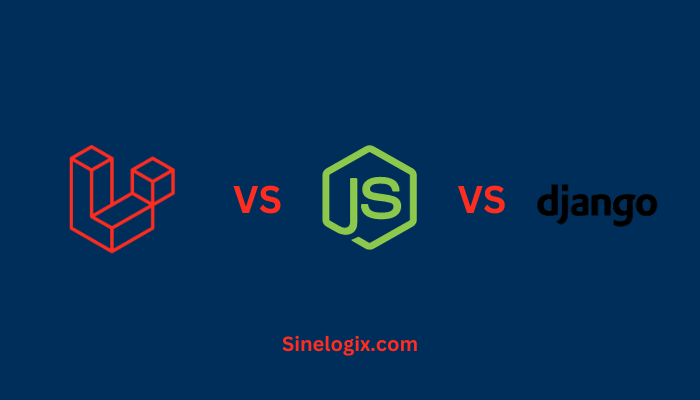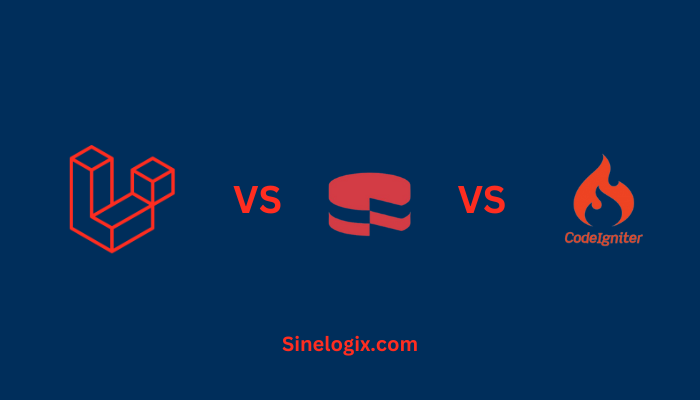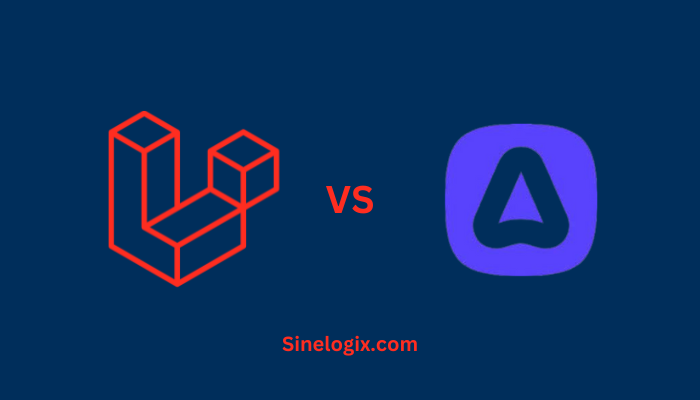In the world of web development, enterprise-level applications demand a unique set of tools and frameworks to ensure their success. Laravel, a popular PHP web application framework, has gained recognition for its versatility, scalability, and ease of use.
In this article, we’ll delve into the world of Laravel for enterprise applications, exploring the reasons why it’s an excellent choice for building robust and efficient solutions.
Understanding Enterprise Applications
Before we dive into the specifics of using Laravel for enterprise applications, let’s clarify what constitutes an enterprise-level application. Enterprise applications are software solutions designed to meet the complex needs of large organizations. These applications typically handle critical business processes, such as customer relationship management, supply chain management, and human resources, among others.
Enterprise applications must exhibit several key characteristics, including:
- Scalability: They should be able to handle a large number of users and a growing amount of data without performance degradation.
- Security: Enterprise data is often sensitive, so applications must implement robust security measures to protect it.
- Reliability: Downtime is costly, and enterprise applications must be highly reliable to ensure continuous operation.
- Integration: They need to seamlessly integrate with other existing systems and software within the organization.
- Efficiency: Efficiency is crucial for handling high volumes of data and user interactions without slowing down.
Why Laravel for Enterprise Applications?
Laravel has become a popular choice for building enterprise-level applications for several reasons:
1. Eloquent ORM
Laravel’s Eloquent ORM (Object-Relational Mapping) simplifies database operations, making it easy to work with databases and model data in an object-oriented way. This feature is particularly beneficial for complex enterprise applications, as it streamlines database interactions and allows for the creation of efficient, maintainable code.
2. Robust Authentication and Authorization
Enterprise applications typically require advanced authentication and authorization mechanisms. Laravel provides a comprehensive authentication system out of the box, including user registration, login, and password reset functionalities. It also offers fine-grained access control with its robust authorization mechanisms.
3. Artisan Console
Laravel’s Artisan command-line tool is a powerful utility that aids in various development tasks. It simplifies routine tasks like database migrations, creating custom commands, and more. In the context of enterprise applications, this feature helps in managing complex tasks efficiently.
4. Middleware
Middleware is a crucial component in Laravel that allows you to filter HTTP requests entering your application. This can be used to implement features such as logging, authentication, and CORS handling. For enterprise applications, middleware helps in enforcing security measures and ensuring data integrity.
5. Testing
Testing is a critical aspect of developing enterprise applications, as it ensures the application’s reliability. Laravel comes with a built-in testing framework, making it easier to write unit and feature tests, thereby improving the overall quality of the application.
6. Blade Templating Engine
The Blade templating engine simplifies the process of designing user interfaces. With its clear and expressive syntax, it’s a valuable tool for creating complex and dynamic UIs in enterprise applications. It allows for the separation of logic from presentation, promoting maintainability.
7. Packages and Libraries
Laravel boasts a thriving ecosystem of packages and libraries. This is especially advantageous for enterprise applications, as it simplifies the integration of third-party solutions, such as payment gateways, analytics tools, and more.
8. Community and Support
Laravel has a vibrant community and extensive documentation, making it easier to find solutions to common problems. Enterprise applications often require ongoing maintenance and support, and Laravel’s community can be a valuable resource.
Building Scalable Enterprise Applications with Laravel
Scalability is a paramount concern for enterprise applications, as they often experience rapid growth. Laravel provides several features that facilitate building scalable applications:
1. Queues and Workers
Laravel’s queue system allows you to defer the processing of time-consuming tasks, making your application more responsive. This is essential for enterprise applications that need to handle numerous background tasks efficiently.
2. Caching
Caching frequently accessed data can significantly boost an application’s performance. Laravel supports multiple caching drivers, including Redis and Memcached, to enhance the speed and scalability of your application.
3. Load Balancing
To ensure high availability and consistent performance, enterprise applications can benefit from load balancing. Laravel can easily integrate with load balancers, distributing traffic across multiple servers to prevent overloading and downtime.
Security Considerations
Security is of utmost importance in enterprise applications, where sensitive data is handled. Laravel includes various security features and best practices:
1. CSRF Protection
Laravel provides built-in CSRF (Cross-Site Request Forgery) protection, safeguarding your application from malicious requests that could exploit users.
2. Data Validation
Data validation is crucial for preventing input from compromising the integrity of the application. Laravel offers convenient methods for validating user inputs.
3. Encryption
Data encryption is essential for protecting sensitive information. Laravel supports data encryption and decryption using the OpenSSL library.
4. Authentication and Authorization
Laravel’s authentication and authorization features, which were mentioned earlier, play a vital role in maintaining the security of enterprise applications.
Integration and APIs
Enterprise applications often need to integrate with various external systems, and Laravel makes this process easier through:
1. RESTful API Development
Laravel simplifies the creation of RESTful APIs, which are crucial for connecting with other services and applications.
2. Third-Party Integrations
Laravel’s robust ecosystem of packages and libraries simplifies integrating third-party services, APIs, and tools into your enterprise application.
Related Articles:
Conclusion
Laravel has proven itself as a strong candidate for building enterprise-level applications due to its versatility, scalability, security features, and robust ecosystem.
With its extensive community and ongoing development, it continues to evolve to meet the ever-changing needs of modern enterprises.
When considering Laravel for an enterprise project, it’s essential to engage with experienced developers who understand the framework and its best practices.
With the right expertise and Laravel’s capabilities, your enterprise application can efficiently meet the complex demands of the modern business world.




